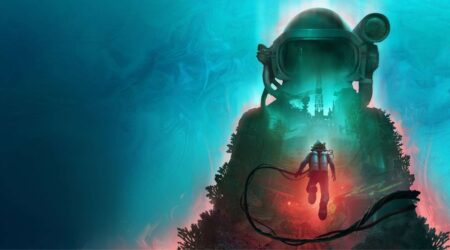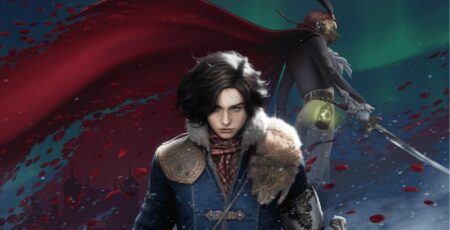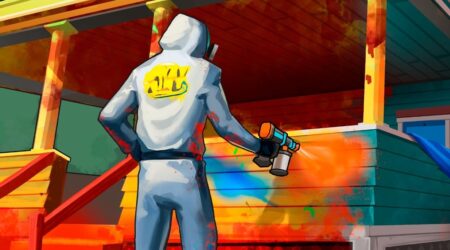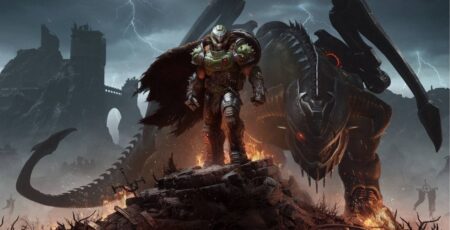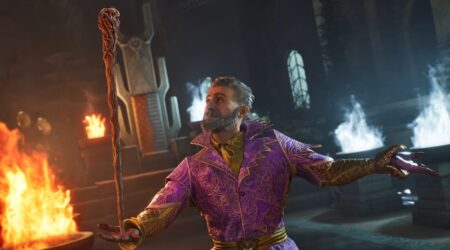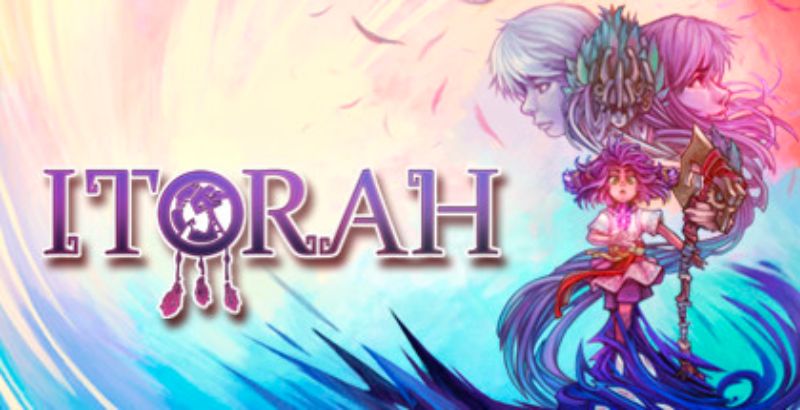
From developer Grimbart Tales and publisher Assemble Entertainment comes Itorah, a 2D action-platformer with Metroidvania elements where you stumble upon a talking staff embodying a once-great warrior and set off to save Nahucan from a mysterious plague.
Itorah’s personality comes more from its art than its story and characters. It’s a sharp pixel style with high-definition character models and luxuriating backgrounds. Across the game’s many lands, no two maps look alike. Even though they are comprised of many of the classic environments, fire lands, and icy lands, you also have an underwater pipework and a dark library too. What I love most about the environments, though, is that as you progress between them, the maps feel like they progress into one another. The underwater zone is preceded by an above-ground water zone, for example. The game’s music is often subtle but also helps set the beautiful atmospheres.
The characters and dialogue, on the other hand, were lacking. The biggest issue is that the text boxes are so small I could hardly read them. I was instantly disincentivized from keeping up with the plot on account of the strain it required to participate in it. But even while reading, the character interaction are rather mundane. Especially with the few NPCs scattered about. Their interactions are short and don’t typically add either humor or exposition, unfortunately.
Following the plot is not requisite for enjoying Itorah by any means. The crux of the game is its combat and platforming. Combat is simple, with one button doing all the action and directional inputs adding slight variations. I appreciate the simplicity but often struggled with hitboxes feeling too small and animation frames taking too long before executing my attacks. Worse, the dodge mechanic felt virtually unusable. It was slow and short-ranged, but you also can’t doge through enemies without taking damage, which means that most of the time I was trying to dodge, I wound up still within the enemy’s reach anyway. When I could dodge sufficiently, it put me so far out of reach that by the time I could wind up to attack again, I could hardly get one swing in before having to dodge again. This slow pace was hardly worth it, so I would wind up just hacking and slashing as quickly as I could, damage be damned.

Nevertheless, I still only died once in my whole playthrough, and it was to the final boss. As you slay enemies, you collect currency that, combined with fairly well-hidden or challenge-blocked special pickups, could be exchanged in the game’s main hub for health, stamina, and regeneration increases. Steadily piling up these increases over the course of the game kept me on the perfect pace for continuing to survive increasingly difficult enemy encounters. Enemies, as the game rolled on, both took longer to defeat and had increasingly difficult attacks to dodge.
The other form of upgrade is by way of Itorah’s Metroidvania-like system of acquiring new abilities mid-level so you can backtrack and progress — albeit along a very linear path. Some upgrades were purely for traversal, like a double jump or air dash, while others could be used in combat, like a ground spike or a charge attack that would break large blocks below in before you respectively. While the platforming wasn’t always as perfectly smooth as I’d like, especially while trying to use a joystick to navigate mid-air, by the time you’re fully powered up, navigation in Itorah becomes very fun. Stringing together all of your skills feels very smooth, especially when I could use them to traverse areas with great speed. I would love to see a sequel to this game where all of the final abilities are unlocked from the start, just so I can experience using them to navigate more platforming challenges from the start.
While the exposition was forgettable, and the combat wasn’t nearly as tight as it needed to be, the art and traversal of Itorah make up for it. It’s a pretty game that rewards you for being creative with your movement but punishes you for being too quick by barring you from valuable health and stamina upgrades and making you backtrack to find keys you may have blown past in your haste to get to the end of an area too fast.
Itorah is available now on , PlayStation, Nintendo Switch, Mac, and PC.
Itorah
-
Rating - 6.5/106.5/10
TL;DR
While the exposition was forgettable, and the combat wasn’t nearly as tight as it needed to be, the art and traversal of Itorah make up for it.

